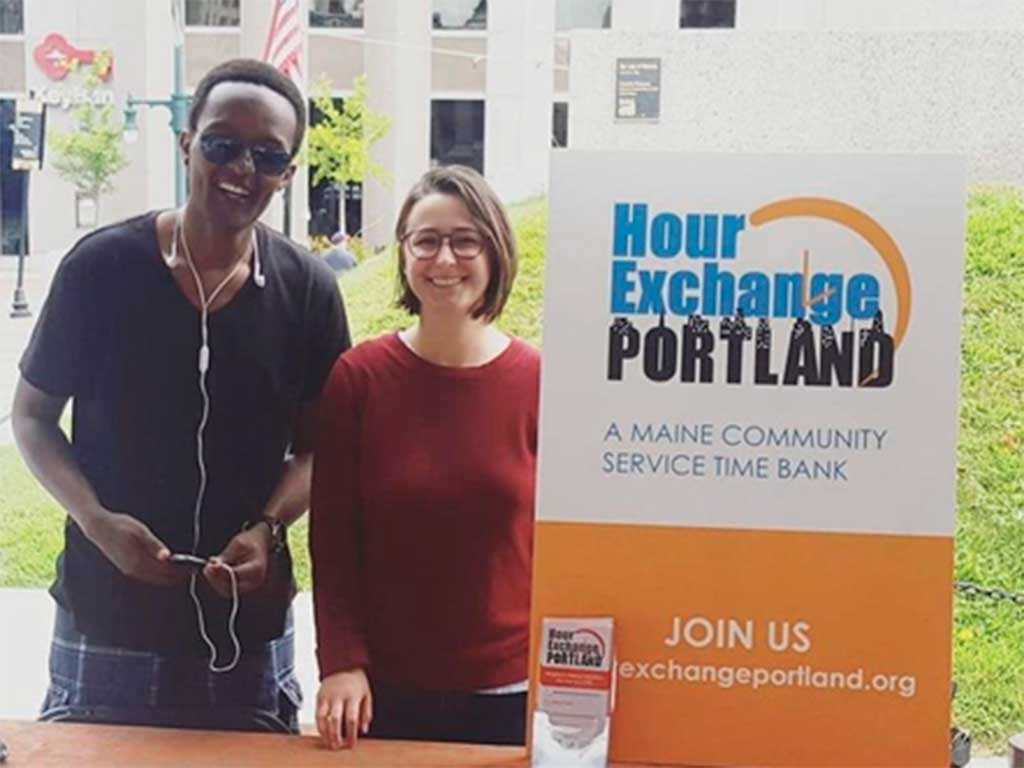
By Eric Fleischmann
Since 1971, when its convertibility into any precious metal was suspended, the US dollar has been a de facto fiat currency. Meaning, in this case, that its value is only maintained by government regulation. But what if money was based on something else? Like time.
Well guess what? That project has been ongoing since at least the 1820s with Josiah Warren beginning a store in Cincinnati, Ohio that used time as the monetary basis of its sales. And this same project has been operating in Portland since 1997. That’s when Hour Exchange Portland was founded under the name Maine Time Dollar Network.
Founded and initially funded by Dr. Richard G. Rockefeller, MD, the mechanism of Hour Exchange is simple: if you work or sell something for x number of hours (unit of time), you can bank x number of hours (unit of currency). You can then use that to employ someone or buy something offered for x hours.
Beyond this basic structure, time-based currencies, “Time-Banking,” or “Time Trade” is based on five basic principles outlined by TimeBanks USA:
- Everyone is an asset.
- Some work transcends monetary value.
- Reciprocity in helping.
- Community (via social networks) is necessary.
- A respect for all human beings.
The ultimate goal of TimeBanking, as outlined by Professor Edgar S. Cahn—CEO of TimeBanks USA, who directly inspired Dr. Rockefeller—in the journal “Futures,” is to address “at least three interlocking sets of problems [faced by Americans]: growing inequality in access by those at the bottom to the most basic goods and services; increasing social problems stemming from the need to rebuild family, neighborhood and community; and a growing disillusion with public programs designed to address these problems.”
But time-banking isn’t only for “those at the bottom.”
Time-banking is for everyone who wants to create networks of local reciprocity and trust that strengthen entire communities.
For instance, members earn two hours just for joining, then exchange with individual members or through collaborations like the Farm to Pantry Network. This involves offering hours to members for helping farmers plant, pick, and glean crops bound for donation to food pantries. We also reward transportation of donated produce with hours. At Hour Exchange’s annual “Bizarre Bazaar,” members exchange crafts for hours, and a burgeoning relationship between World Roots Culture Exchange and Hour Exchange Portland fosters cross-cultural dialogue.
Visit www.hourexchangeportland.org to learn more or to make an appointment to visit us at the Immigrant Welcome Center. So, what’re you waiting for? Time is money.
Eric Fleischmann is a left-libertarian anarchist, an intern for Hour Exchange Portland, and an undergrad student pursuing degrees in anthropology and philosophy at Bates College in Lewiston.
Disclosure: WEN Publisher-Editor Tony Zeli is a board member of World Roots Culture Exchange.



